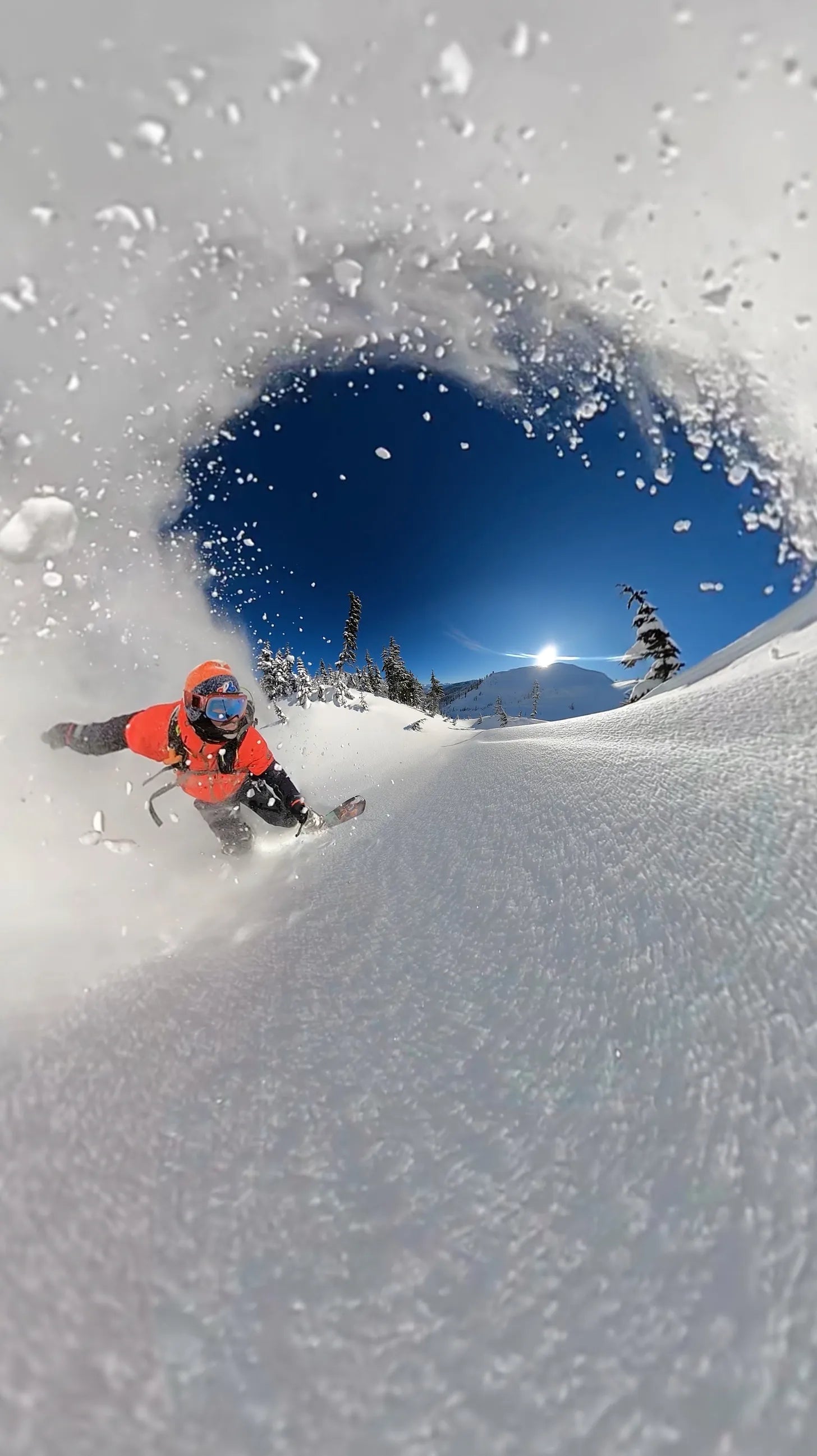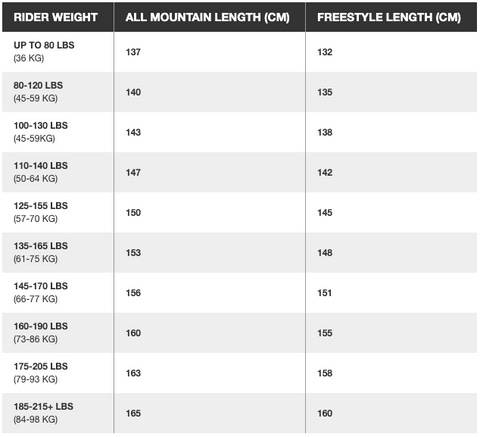
You walk into a snowboard shop to purchase your new snowboard for the riding season. The sales associate helps you pick out a few options and stands in front of you. They tell you that if the board is between your chin and your nose, you’re good.
That’s not entirely accurate.
Take a look at a snowboard size chart. Snowboard size is as much about your weight and foot size as it is about your height. Moreover, as board shapes have diversified with the popularity surge of powder and big mountain freeriding, it’s not uncommon for riders to have significantly larger or smaller decks.
Start by using a Snowboard Size Chart
Imagine strapping in a board that’s the wrong size every weekend, every powder day, and every day off from work. Instead of enjoying, you’re enduring. Or worse, you’re putting up the board on KSL ads, selling it for a greatly reduced price, and hoping you don’t get spammed.
Avoid this bandwidth-testing disaster. Don’t guesstimate your board size. Rather, use a snowboard size chart.
A snowboard size chart outlines a range of sizes you could comfortably ride based on your height and weight. A good example looks like this:
Your weight, strength, and skill matter more than you think
Your weight plays a huge role in choosing the right snowboard size. Let’s say you have a 5'5" rider.
If they weigh 150 lbs, a snowboard size chart would recommend they comfortably ride a 152cm or 154cm board. Add fifty pounds to a 5'5" rider, and the snowboard size chart recommends going up to a 157cm or 158cm board. But if that ride is much lighter, at 110 pounds, they will need something much smaller, such as a 143cm.
Your strength and riding technique also plays a pivotal role in finding the appropriate snowboard size.
A fit, experienced 150-pound rider, someone with substantial lower body power, may prefer and be able to maneuver a larger board than that. Similarly, a 150-pound rider who is primarily sedentary may have a better time on a board that’s on the shorter side of what’s recommended.
To give you an idea of the visual comparison of those sizes, here is a side-by-side comparison.
Your foot size also matters
The width of your board is critical. Too narrow of a board means you’ll have toe or heel drag when you turn. In that case, part of your boot catches the snow. Obviously, that can increase the risk of falling, especially in steep, firm conditions. It also prevents you from carving cleanly, one of the most beautiful experiences a snowboarder can have.
The general rule of thumb is anyone who has over a size 11 shoe requires a wide board.
Big for you will be stiffer; small for you will seem softer
If you only have one board, keep it close to the recommended size on the snowboard size chart. As you build a quiver, you’ll inevitably have boards in different shapes and sizes to match up with different snow conditions and the types of terrain you like to ride.
Be aware that a smaller board will feel softer, easier to press, and quicker to turn. The major benefit of a smaller board is how nimble it feels. It will turn easier in the trees and twist more readily over bumps.
A bigger board may feel a little stiffer, making it ideal for carving groomers, riding pipe, and navigating packed powder (or icy) conditions. Many riders prefer a larger deck because of the stability it provides, allowing them to maintain high speeds and feel in control.
Sizes may vary depending on the style of board you like, its shape, and the camber profile
In recent years, smaller, heavily tapered swallowtail boards have become wildly popular. It’s customary for someone who typically rides a 154cm to ride a 143cm, give or take a size.
Mixed rocker-camber boards typically ride bigger, meaning someone who rides a 156cm camber directional can get away with riding a size or two down.
In other words, there are exceptions to the snowboard size chart recommendations.


